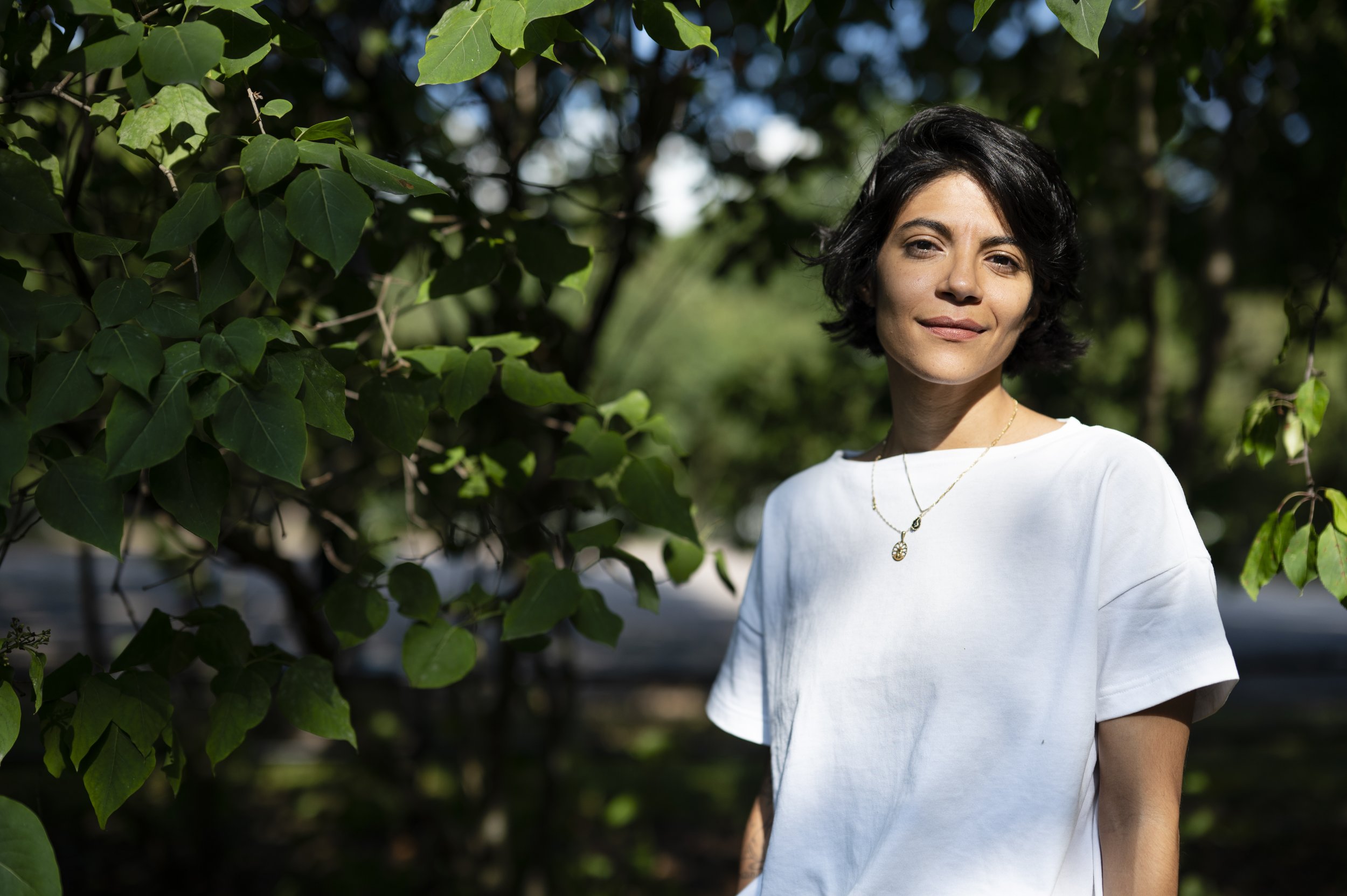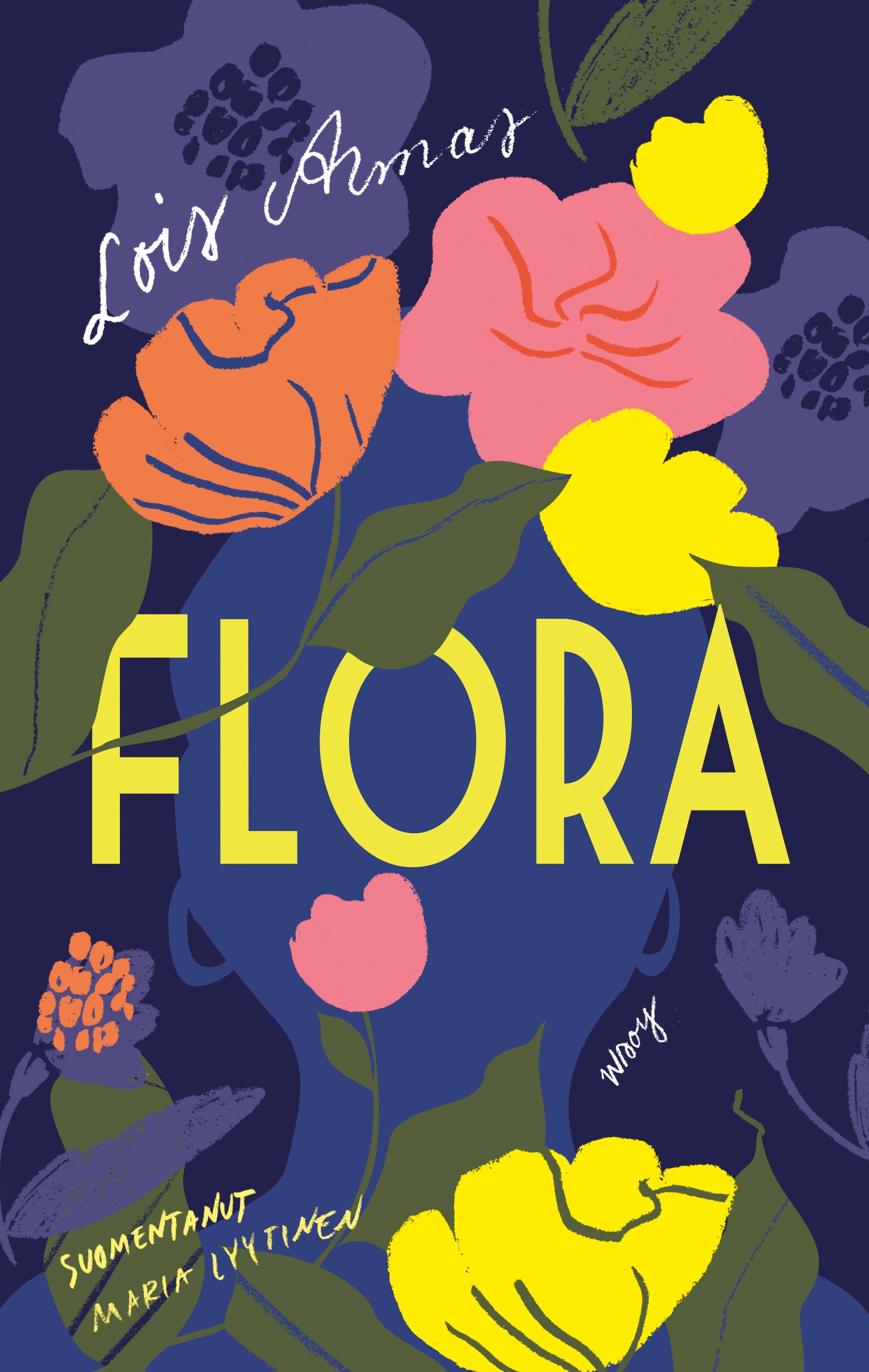Discussing Flora with novelist Lois Armas
The Helsinki based writer and RT LIT Academy’s alumni goes into depth about her debut novel

Text: Fiona ‘Elone
Photography: Veikko Somerpuro
June 12, 2023
The first time I had the pleasure of reading Lois Armas’s Flora was roughly three years ago in RT LIT Academy’s first master class, in which we both participated as students. Already then, in its earliest stages, it was clear that the story was just waiting to find its final form and to be released to the world. After graduating the class, Armas signed a book deal with WSOY, made some bold changes to the structure of her script and went on to publish her debut novel. Three years after that first time, we sat down again, this time in my living room turned Ruskeat Tytöt office, to discuss Armas’s process and journey of making Flora reality and how life has been since publishing.
“Putting the story out there has been part relief, part anxiety, part nervousness, but I’m good.” Armas starts, with both joy and tension in her voice. A warm tone quickly takes over as she continues to tell about the reception her book has had.
“It was really meaningful for me to get feedback from people I don't know as well as from friends. To hear that the story has resonated with them, to hear what they loved about it, has made me want to do it again.”
“It’s about who we are to ourselves and in relation to others.”
And rightfully so. The story is filled with so many different layers and types of love it would be hard not to feel it. Reading it I instantly felt familiarity in the way Armas describes different families and realities, the joys and struggles of belonging, feeling in and out of place at the same time in homes and in relationships with others and ultimately one’s self. To me Flora is about that. I proceed to ask her writer whether I’ve understood the intention.
“You couldn’t have described it better. In the back of the book it says, Flora is about finding home and that’s how people refer to it. But I don't.”
We share meaningful glances and go onto rant about how the white lens often has an overt affect on how stories of non-white writers are viewed, resulting in less than well rounded interpretations. Unsurprised yet disappointed, I learn that Armas and Flora have not escaped this experience. After enough frustrated grunts and a few good it is what it is’s we continue to discuss what the story is actually about.
“It’s about finding one’s self in relationships, deciding how important they are, which ones are worth keeping and how one can feel fulfilled within those relationships. I think they are universal experiences regardless of the context and the particularities we all go through in our twenties, thirties or fifties and sixties as the parents are in the book. It’s about who we are to ourselves and in relation to others.”
Flora is special for many reasons and not the least because the way her story is told by everyone but herself. The book is narrated by people close to her: her partner, her partner’s mother and her partner’s ex, her co-worker and her own father. Having read the first versions, this was a surprise that turned out to be one of my favourite things.
“In the beginning I wrote from Flora’s point of view, but it didn’t feel genuine. I realized that as much as I had gotten to know all the other characters around her, to me she was still lacking. Flora is this very courageous don’t give a fuck -type of person who has her own words and ways and I didn’t want to put words into her mouth. To me my characters are very real and not giving her a voice felt like a gift. It felt like I was giving her the opportunity to be the main character and live as she sees fit, doing her own thing, because she’s so much more than just the voice I had written.”
I ask Armas if it was difficult to make such a major structural shift mid writing.
“I had written a lot about all the other characters already, only from Flora’s perspective. I had already imagined how they talked and after doing the switch I felt way lighter and way more confident that it was what I needed. I felt at peace with her living in the minds of others. That’s the beauty of literature. People get to form their own idea of Flora, whoever she is. I know who she is for me.”
“With all of the characters, I started from a point where I related to them, from very concrete things.”
Flora’s story unravels for the reader from several different experiences around her. While all the narrating characters go through their individual experiences, all of them are connected, besides Flora, by the universal struggle of existing as humans. I wonder how it is to write a coherent story from so many different perspectives.
“With all of the characters, I started from a point where I related to them, from very concrete things. And as I started writing them, I noticed things started to happen around them that I didn’t necessarily relate to, but could still continue writing due to that small departure point of familiarity.”
“At the same time I didn’t want to go too deep into experiences I don’t know. They are there, but I focused on what I know, things that I can explore from my own point of view or relatability point.”
Armas explains that she struggled with creating distance between herself and some characters with similar experiences.
“At some point there were pages and pages of ranting, which was very valid, but also made me think to myself can you contain it in a chapter?”, she laughs out loud and rolls her eyes before continuing in an amused voice.
“I even remember reading old diaries and thinking, YES this is EXACTLY how he feels, because that was how I felt. I struggled to give them what I felt belonged to them, instead of making it about me.”
And yet Armas has succeeded in creating several genuine and very distinct individual voices, I protest.
“It was very clear for me from the beginning how each of them spoke, but it took some work.”
“I was really fulfilled when I saw Flora had so many reservations in the library.”
“I also struggled a lot with the voice of the boyfriend, maybe because I feel the furthest from heterosexual men. I wondered to myself How do they even speak? They’re entitled so do they walk like they own everything? I still don’t know.”
“I think I also struggled with giving him a voice, because he is describing their relationship with Flora on both their behalf. He is the closest to her. It was a balance of telling his experience and also including her. It made me wonder whether I like him or not and how that affects my writing.”
I ask Armas if she has any expectations for the future now that Flora is out.
“Not really. I went into this thinking that this is my first work and I want to look back at it in 10 years knowing I’ve grown as a writer.”
“I was really fulfilled when I saw Flora had so many reservations in the library. Fuck the bookstores and their expensive prizes. The fact that libraries had to order more copies, because there were so many reservations, was great.”
“I really enjoy writing and I think that the people who will like the book will find it. I think it’s happening as we speak and that’s when the circle will be complete.”
Fiona ‘Elōne (she/they) (b.1995) is a Finnish Tongan writer, producer and card game enthusiast. In her work and life she focuses on making mischief, reconnecting with ancestral wisdom and dedicating time for chillaxing.
Read More
“Yet here I am, the eternal immigrant, even in for us, by us spaces. “
Essay and checklist by Koko Hubara





